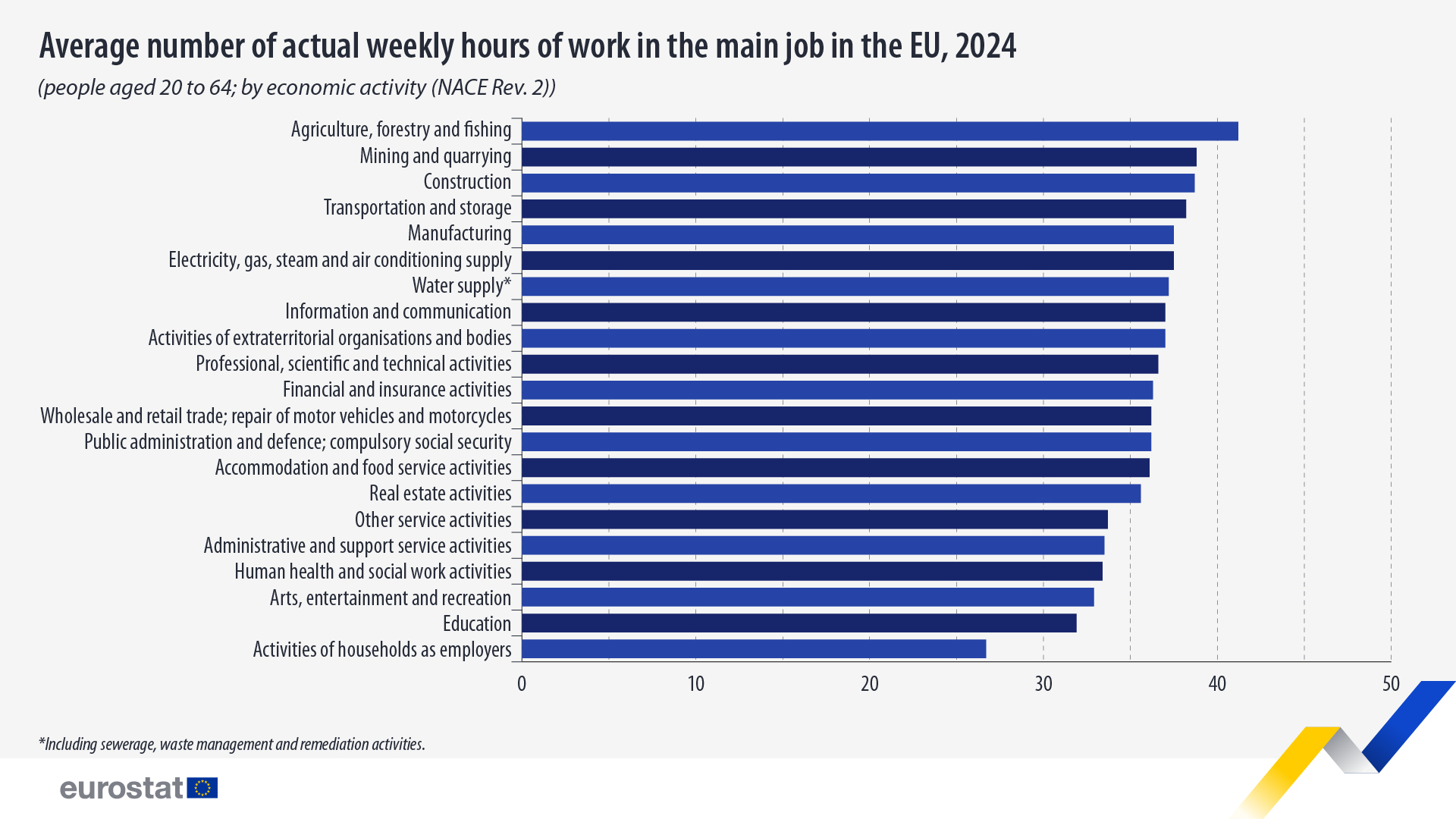People in the EU worked on average 36 hours per week

In 2024, the actual weekly hours of work for both full-time and part-time workers aged 20-64 in the EU in their main job averaged 36.0 hours, down from 37.0 hours in 2014.
A closer look at EU countries reveals notable differences. In 2024, the longest working weeks were recorded in Greece (39.8 hours), Bulgaria (39.0), Poland (38.9) and Romania (38.8). By contrast, the Netherlands had the shortest working week (32.1 hours), followed by Denmark, Germany and Austria (each 33.9).
Source dataset: lfsa_ewhan2
The economic activities recording the longest working week in the EU, in 2024, were agriculture, forestry and fishing (41.2 actual working hours), mining and quarrying (38.8) and construction (38.7), whilst the shortest working weeks were recorded in activities of households as employers (26.7), education (31.9) and arts, entertainment and recreation (32.9).
Source dataset: lfsa_ewhan2
For more information
- Statistics Explained article on actual and usual hours of work
- Thematic section on employment and unemployment (LFS)
- Database on employment and unemployment (LFS)
Methodological notes
- Figures do not include non-responses (i.e., data from those whose average hours worked is not known).
- The average working hours presented in the article include both full-time and part-time workers. The results are affected by the varying proportions of part-time workers across countries, in addition to differences in legal frameworks and in country-specific usual length of the workweek.
- Actual weekly hours of work refer to the total number of hours a person has spent on work activities, during the reference week, in the main job. This encompasses all hours worked, including main job-related extra hours, irrespective of compensation. Excluded from this measure are periods of absence from work such as sick leave, holidays and commuting time.
- Usual hours worked are the number of hours per week usually worked in the main job. They are the modal value of the actual hours worked per week over a long reference period, excluding weeks when an absence from work occurs (e.g. holidays, leaves, strikes). They represent an analysis tool to study working time arrangements.
For information on upcoming releases, please consult our release calendar. If you have any queries, please visit our contact us page.

